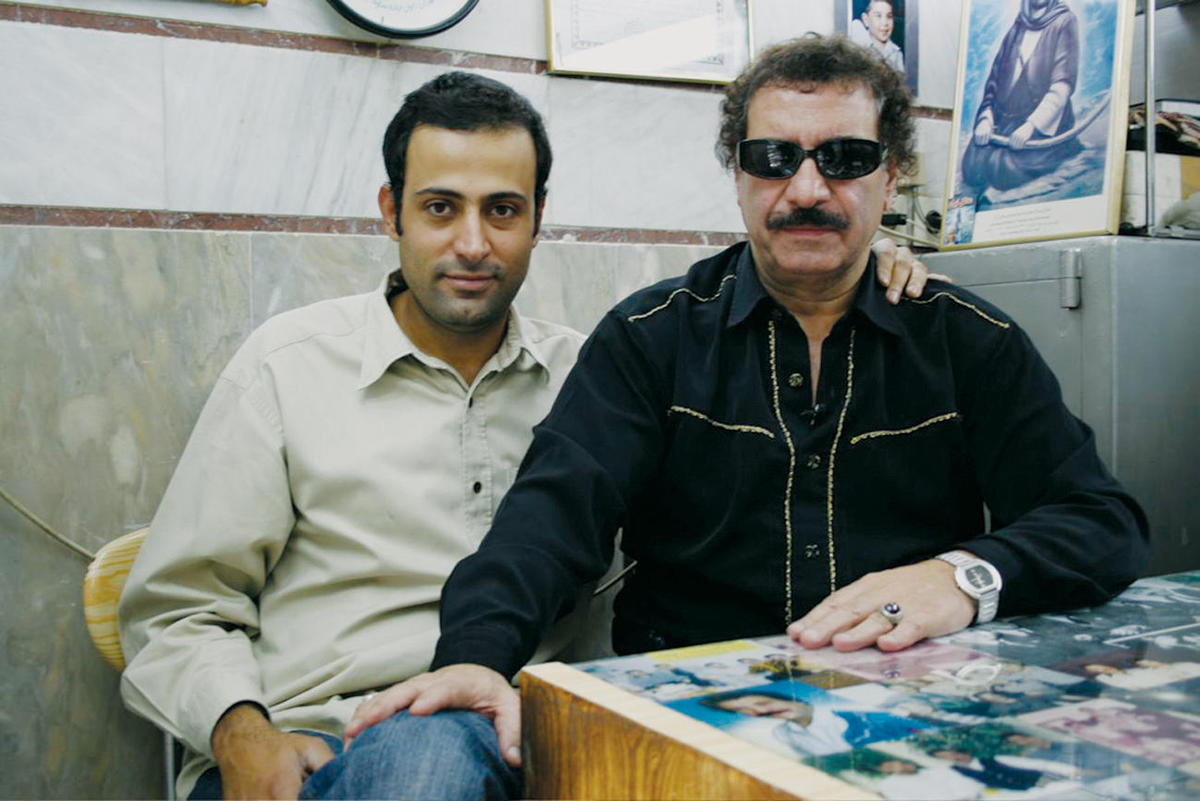
One of the very few perks of being an Iranian these days is having the chance to sit back and take a good look at yourself in the mirror. You can find, acknowledge, and accept flaws, or fall in love with parts you like. (There’s more to being an Iranian, after all, than wearing chador or chanting angrily.)
Like what, you ask? Well, we have a chopped salad history of various religions and traditions, dressed in Arab, European, and more recently American culture. Despite our diversity, though, these days we’re shunned by pretty much everyone.
As a people, we Iranians have brought down dynasties, sabotaged revolutions, and fought wars, but we’re always caught by surprise when we’re invaded, oppressed — or shunned, for that matter — even though, as with any other old culture, it’s happened countless times. The difference between us and everyone else is our terrible documentation problem — along with our endless rewriting of our own history. Everyone in Iran is a talking head without airtime.
One example of what often gets erased in this endless historical revisionism is the existence of a pre-Revolution Iranian nightlife. Clubs, discos, musicians, performers, dancers, bars, and their patrons disappeared less than six months after members of the old regime headed for the hills. The shock of the Revolution and then the bloody eight-year war with Saddam Hussein’s Iraq were distracting enough that everyone failed to see how losing some liquor stores could turn almost every other home into a mini-bar. And how the work of a few mediocre singers in nightclubs could transform our traditional music.
Enter a new film about the bazaari legend Javad Yassari. In a culture that doesn’t have a word for entertainer, someone like Javad has no right to exist. I’m not championing his work’s artistic value (if it has any). My issue is with the fact that he has been denied airtime for the past twenty-seven years, deemed, along with his contemporaries, both inappropriate and irrelevant. Now, a generation after the Revolution, we still don’t get pop music. We’ve had to reinvent popular music again, and again, and again. At the end of this broken chain of musical experimentation is contemporary Iranian pop music, based in Los Angeles, featuring bad imitators singing like pre-Revolution performers about things that don’t matter.
Javad Yassari’s portrait could illustrate the words “Iranian kitsch” in any encyclopedia. He dresses funky; looks like one of Saddam’s generals; sings cheesy songs about love, love, and love; and generally provokes all the testosterone-driven, manly aspects of one’s character. Did I mention the uncontrollable urge to dance like a truck driver? Very Iranian! (The Iranian side of us that we don’t speak of in front of non-Iranians.)
Tehran-based British writer Coco Ferguson became so fascinated by Javad’s myth and character that she set out to produce a film, looking back at his days as a national star in the 1970s and documenting his current work, including occasional stints as the main attraction at a “Persia Night” in one of Dubai’s dodgier downtown hotels. The documentary is mostly shot and directed by Bahman Kiarostami — another Javad admirer and a witty observer of what goes on in the boiler room of Iranian culture these days. In Dubai, the producer-director team spent evenings documenting Javad’s residency at a nightclub, where he excelled in his (somewhat downfallen) role as entertainer to Iranian nostalgists, businessmen, and traders busy drowning their sorrows, as well as slightly haggard ladies of the night.
The project is a long-term game — especially since Javad is ultra-hesitant and cautious about where and how he’s documented. Like almost all contemporary pop artists still living in Iran, he is alternatively ignored and banned by the Iranian authorities, but loved and admired by his peculiar fan base (truck drivers, as mentioned, and drunk North Tehran youth).
Despite the bans on pop and his paltry Dubai pay, Javad has managed to survive by running a small, one-man electronic appliance store in southern Tehran as a front, always choosing his next gig with a lot of caution. In many ways, his life story is as hilarious to watch as it is sad.
Films such as Kiarostami and Ferguson’s help turn myths into reality. As a result, yet another piece of “unknown” can be filed in the “known” file cabinet, helping the likes of me sidestep the ditches my father and his generation just crawled out of.
Not to forget the music: I think Javad Yassari’s brand of kuche bazaari singing is as organic and original as our hand woven carpets, and fun to listen to… But you’ll find that out for yourself when the documentary is released mid-2007.